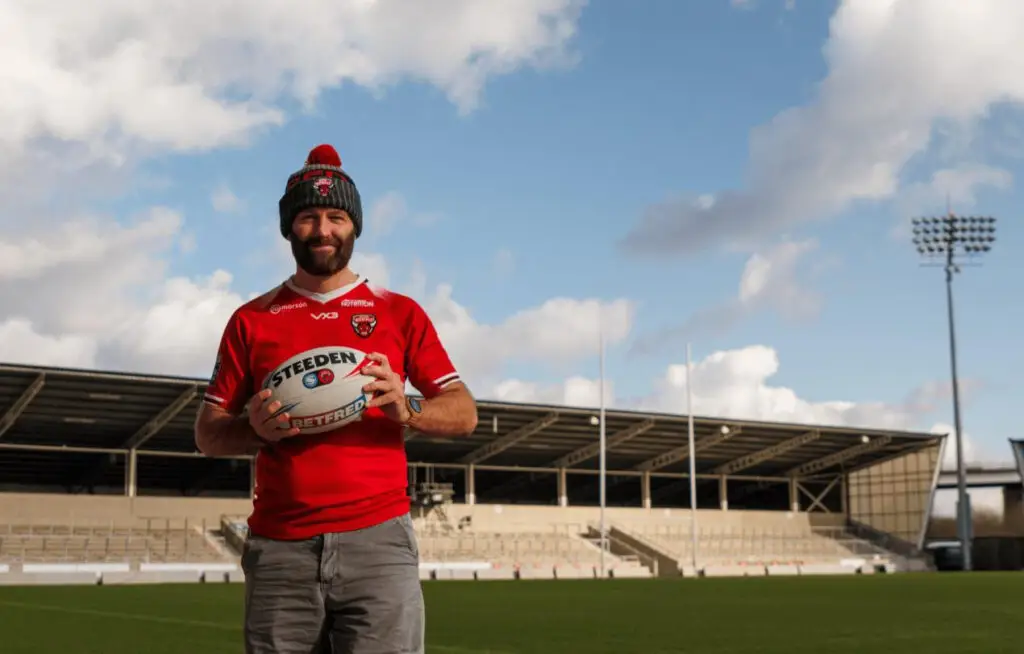In a significant development, Salford City Council’s cabinet has formally approved the complete acquisition of the Salford Community Stadium, currently known as AJ Bell Stadium. This decision follows months of intricate negotiations and marks the council’s full ownership of the stadium along with surrounding development plots.
According to Salford Mayor Paul Dennett, this ‘landmark’ deal promises to unlock substantial redevelopment and regeneration opportunities for the region. Previously, the stadium was jointly owned with The Peel Group, who will now exit the venture. The purchase includes not only the stadium, home to both the Salford Red Devils and Sale Sharks, but also adjacent land plots seen as key for future development.
Mayor Dennett emphasised the broader benefits of this acquisition, which align with the council’s strategic priorities. ‘Through sole ownership, we’ll be able to open up this area of the city for future redevelopment and regeneration,’ said Dennett. He pointed to the potential for job creation, enhanced social value, and significant private sector investment as critical outcomes of this deal.
Salford Community Stadium is a pivotal venue not just for local sports, hosting both Rugby League and Rugby Union matches, but also for community engagement and major events like the Rugby League World Cup. Upcoming plans include hosting the Women’s Rugby World Cup in 2025. Dennett, a proponent of public ownership, further noted that the acquisition is integral to Salford’s evolving Rugby Strategy and Sports and Leisure Strategy, both of which are under development.
The council’s decision aligns with its overarching Corporate Plan, which aims to foster a fairer, greener, healthier, and more inclusive city. This is part of a broader investment initiative in sports and cultural facilities across Salford, including tennis courts, futsal, and gym facilities. These efforts also aim to position Salford as a cultural hub, underscored by significant investments in institutions like The Lowry, BBC Philharmonic, and RHS Bridgewater.
Reflecting on the council’s commitment, Dennett expressed pride in the landmark decision, recognising it as crucial for the stadium and the clubs it houses, particularly the Salford Red Devils. He highlighted the strategic implications for redevelopment, skills, job opportunities, and community engagement. ‘This decision is rooted in strategic redevelopment, regeneration, and supporting grassroots sports,’ he stated.
Greater Manchester Mayor Andy Burnham also lauded the decision, underscoring its importance not just for Salford but for rugby fans across the region. ‘This is fantastic news for Salford and for rugby fans across Greater Manchester,’ Burnham remarked. He hailed the stadium as a community asset and a symbol of regional sporting heritage and future opportunities.
Nic Beech, Vice-Chancellor of Salford University, echoed these sentiments, citing the acquisition as a ‘significant step forward in the regeneration of Salford’. He envisioned the stadium as a state-of-the-art venue that would boost local pride, economic growth, and community opportunities.
However, the decision has not been without controversy. The small Conservative opposition on Salford City Council has been vocal in its disapproval, citing concerns over the council’s financial priorities. Councillor Robin Garrido suggested that the Salford Red Devils, facing financial challenges, should become self-supporting and criticised the council for what he termed as financial imprudence. Garrido’s comments highlight the ongoing debate surrounding the council’s financial strategies and priorities.
The formal approval of Salford City Council’s acquisition of the Salford Community Stadium represents a significant milestone in the city’s redevelopment plans. Despite opposition, the council’s leadership remains committed to enhancing community assets, driving economic growth and securing the future of local sports clubs.


